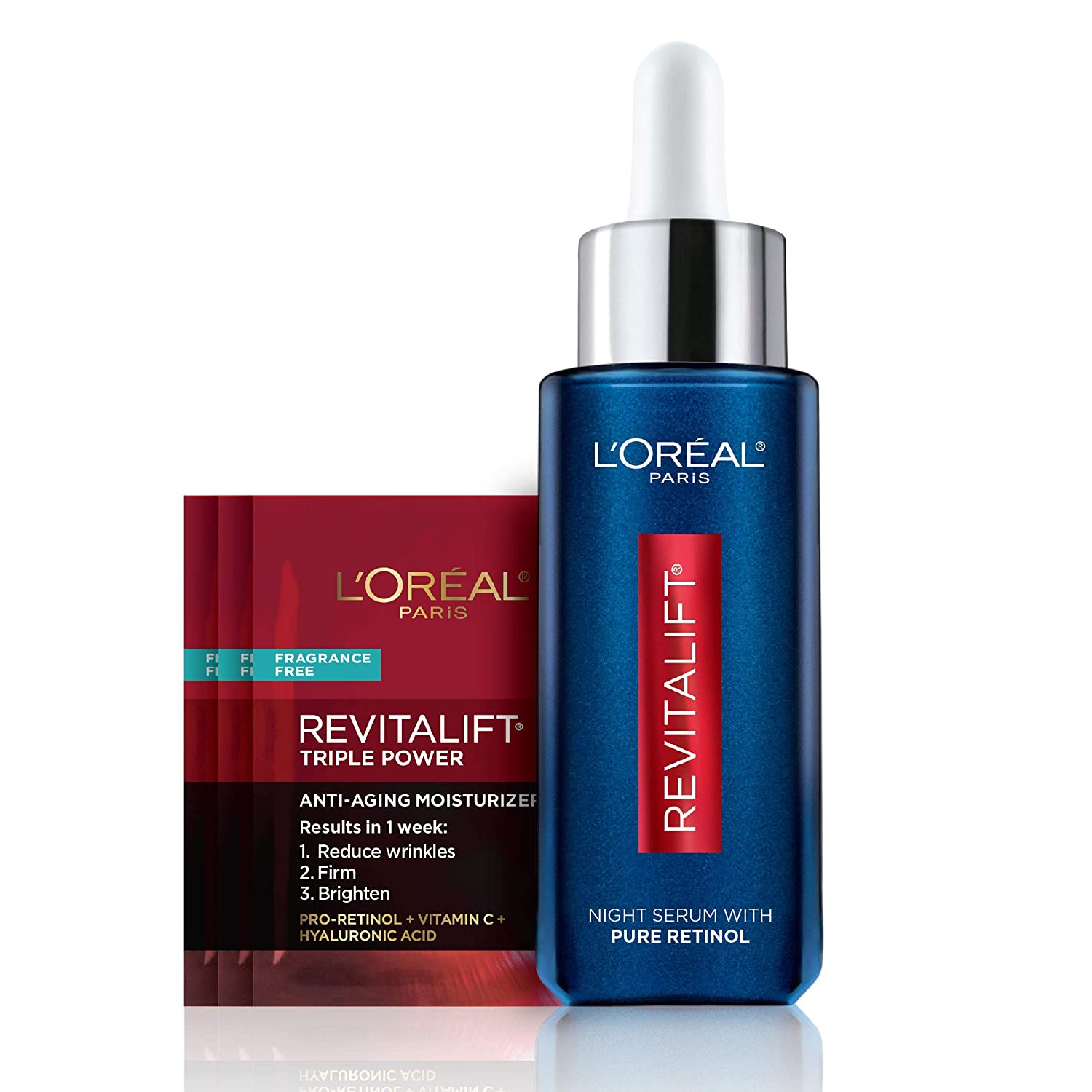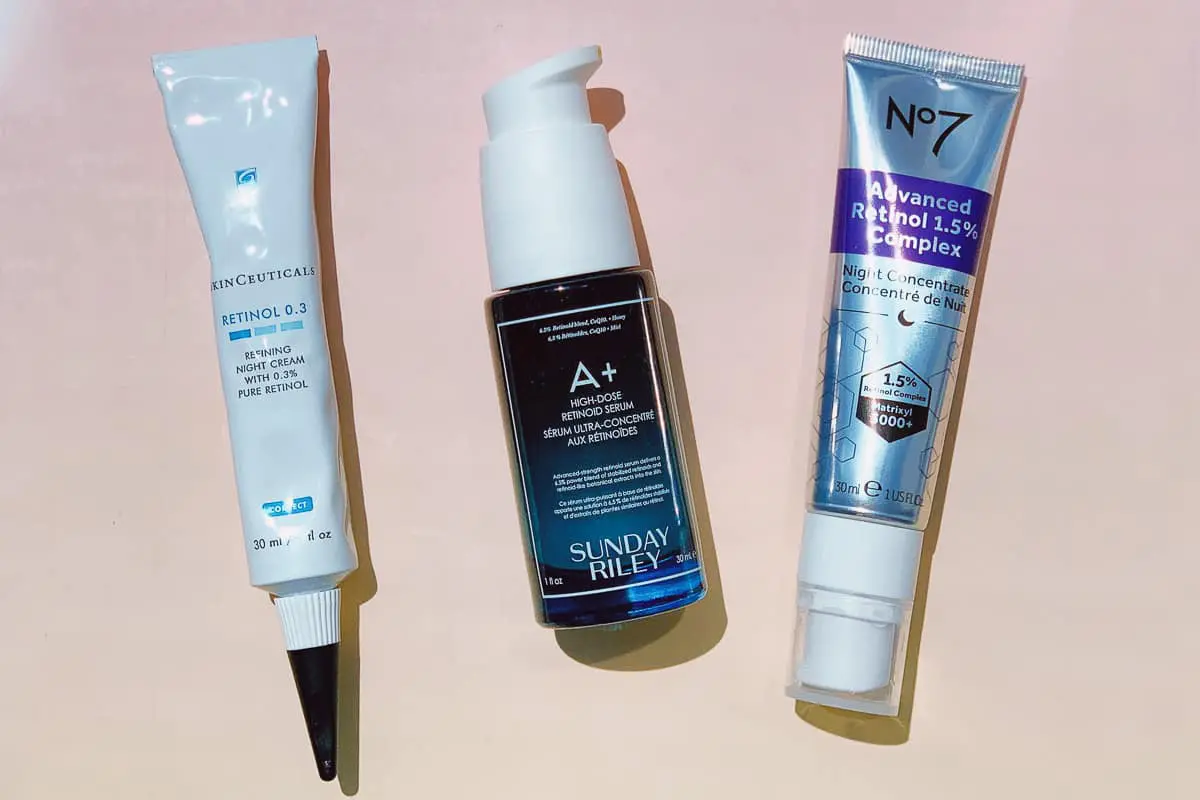Unlocking The Power Of Retinol Over The Counter: A Guide To Radiant Skin
When it comes to achieving youthful, glowing skin, the buzz around retinol over the counter has captured the attention of beauty enthusiasts and skincare novices alike. This powerful ingredient, derived from vitamin A, has long been hailed as a game-changer in the skincare world. With numerous products now available without a prescription, it’s easier than ever to incorporate retinol into your daily routine. But what makes retinol such a sought-after component in skincare, and how can you navigate the multitude of options available? In this article, we will explore the benefits of retinol, how it works, and the best practices for using it effectively, all while keeping your skin's unique needs in mind.
Retinol works wonders by promoting cell turnover, reducing the appearance of fine lines and wrinkles, and tackling issues like acne and pigmentation. As you delve deeper into the realm of retinol over the counter, you may find yourself considering how to incorporate it into your existing routine. The good news is that with the right knowledge and guidance, you can harness the potential of this remarkable ingredient to elevate your skincare game. Let’s explore the ins and outs of retinol, from its benefits to application methods, and answer some of the most common questions surrounding its use.
Finally, with the popularity of retinol on the rise, it’s essential to understand the differences between various formulations and strengths available over the counter. With so many choices at your fingertips, it can be challenging to find the perfect product tailored to your skin type. In this comprehensive guide, we will break down everything you need to know about retinol, helping you make informed decisions for beautiful, healthy skin.
Read also:How Old Was Melania When She Had Barron A Detailed Look At Her Life And Journey
What is Retinol and How Does It Work?
Retinol is a derivative of vitamin A, a powerhouse nutrient that plays a crucial role in skin health. It works by accelerating cell turnover, which helps to shed dead skin cells and promote the growth of new, healthy cells. This process can reduce the appearance of fine lines, wrinkles, and dark spots, giving your skin a more youthful and radiant appearance. Additionally, retinol can help unclog pores, making it an effective treatment for acne-prone skin.
Are All Retinol Products Created Equal?
Not all retinol products are the same. Over-the-counter options can vary significantly in terms of concentration, formulation, and additional ingredients. Some products may contain retinol in combination with other beneficial ingredients, such as hyaluronic acid or peptides, which can enhance its effectiveness and provide additional hydration to the skin. When selecting a product, it’s essential to consider your skin type and concerns to find the right formulation for you.
What Strength of Retinol Should You Start With?
When beginning your journey with retinol, it’s advisable to start with a lower concentration to allow your skin to acclimate to the ingredient. Many over-the-counter products contain retinol concentrations ranging from 0.25% to 1%. Starting with a product that has a lower concentration, such as 0.25%, can help minimize the risk of irritation while still delivering results. As your skin becomes accustomed to retinol, you can gradually increase the concentration if desired.
How to Incorporate Retinol Over the Counter into Your Skincare Routine?
Incorporating retinol into your skincare routine can be a straightforward process. Here are some steps to help you get started:
- Choose the Right Product: Select a retinol product that aligns with your skincare goals and skin type.
- Patch Test: Before applying retinol to your entire face, do a patch test on a small area of your skin to ensure you don’t have an adverse reaction.
- Start Slowly: Begin by using retinol once or twice a week, gradually increasing frequency as your skin adjusts.
- Follow with Moisturizer: To combat potential dryness, follow up with a hydrating moisturizer after applying retinol.
- Apply Sunscreen: Retinol can increase your skin’s sensitivity to the sun, so always apply a broad-spectrum sunscreen during the day.
Can You Use Retinol with Other Active Ingredients?
While retinol is a powerful ingredient, it can sometimes react with other active ingredients, leading to irritation. It’s essential to be cautious when combining retinol with other potent ingredients like alpha hydroxy acids (AHAs) or beta hydroxy acids (BHAs). If you wish to incorporate multiple active ingredients into your routine, consider using retinol on alternate nights or consulting with a skincare professional for personalized advice.
What Side Effects Should You Expect from Retinol Over the Counter?
While retinol is generally safe for most individuals, some may experience side effects, especially when first starting. Common side effects include:
Read also:How To Consultar Cedula Cne En Venezuela A Complete Guide
- Dryness and flakiness
- Redness or irritation
- Increased sensitivity to sunlight
These effects are usually temporary and can be managed by using a lower concentration, applying moisturizer, or reducing the frequency of use. If you experience severe irritation or discomfort, it’s best to consult a dermatologist for guidance.
Are There Alternatives to Retinol Over the Counter?
For those who may be unable to tolerate retinol or prefer alternatives, several options can offer similar benefits. These include:
- Bakuchiol: A plant-based alternative that has been shown to provide similar anti-aging benefits without the irritation associated with retinol.
- Peptides: These can help promote collagen production and improve skin elasticity.
- Vitamin C: An antioxidant that brightens the skin and helps reduce the appearance of pigmentation.
Ultimately, the best choice will depend on your skin type and specific concerns. Consulting with a skincare professional can help you find the right product for your needs.
Conclusion: Is Retinol Over the Counter Right for You?
In conclusion, retinol over the counter can be a fantastic addition to your skincare routine, offering numerous benefits for a variety of skin concerns. By understanding how to use it effectively and choosing the right product, you can unlock the full potential of this powerful ingredient. Whether you’re dealing with fine lines, acne, or uneven skin tone, retinol may be the solution you’ve been searching for. Always remember to listen to your skin and consult with professionals when needed to ensure you achieve the best results with your skincare journey.
Article Recommendations


/BYRDIE-18-best-over-the-counter-retinols-4159713-primary-48c842ac86534f5d88b79520bc0e6217.jpg)